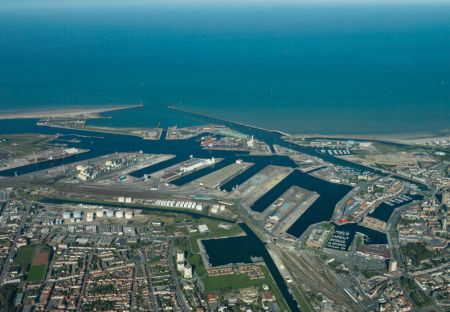
Following a detailed analysis and the finalisation of the project, an agreement will be signed with this consortium and a call for funding issued soon afterwards, notably under the European Union’s TEN-T proposals scheme.
The project presented by these companies is organised as follows:
Exmar, for its part, will handle the preliminary studies, the engineering and the building of a bunkering ship with a capacity to be defined according to LNG requirements as identified during the initialisation phase. Its operation will be assigned to Exmar Shipmanagement (a subsidiary of Exmar).
During the first phase it is proposed that the loading arms and the main wharf of the LNG terminal, currently under construction, be adapted to rapidly allow the supply of LNG to ships with capacities of up to 2,000 m3.
In a second phase the consortium proposes to create a marine station specifically dedicated to bunkering, which could accommodate ships with capacities of between 2,000 and 20,000 m3. Gaz-Opale will operate the marine station.
During a later phase the consortium also plans to build a bunkering barge which could supply vessels on the inland waterway networks.
We use cookies to improve your experience. By continuing to use our site, you accept our Cookies, Privacy Policy,Terms and Conditions. Close X